S Travis Waller
Unsupervised Knowledge Adaptation for Passenger Demand Forecasting
Jun 08, 2022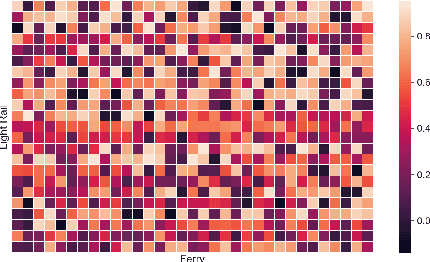
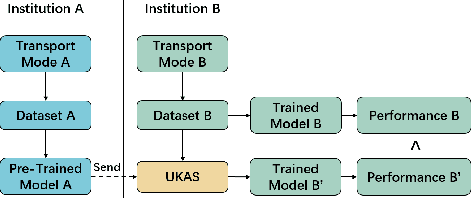
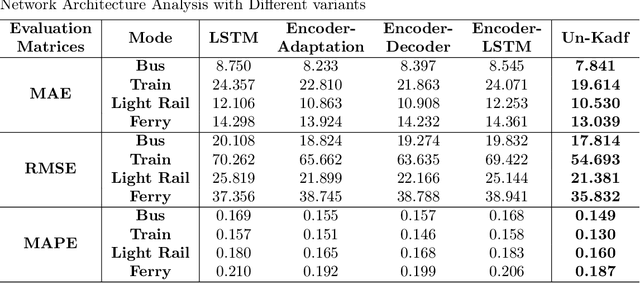
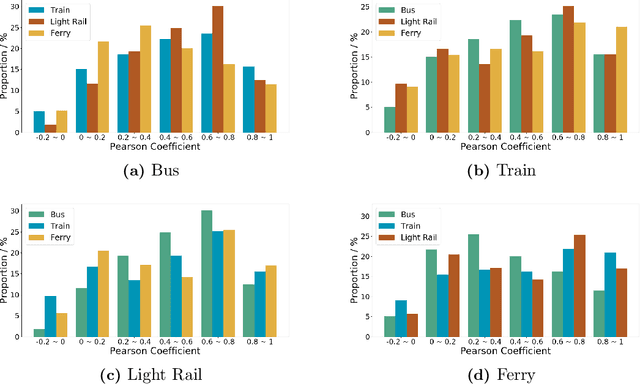
Abstract:Considering the multimodal nature of transport systems and potential cross-modal correlations, there is a growing trend of enhancing demand forecasting accuracy by learning from multimodal data. These multimodal forecasting models can improve accuracy but be less practical when different parts of multimodal datasets are owned by different institutions who cannot directly share data among them. While various institutions may can not share their data with each other directly, they may share forecasting models trained by their data, where such models cannot be used to identify the exact information from their datasets. This study proposes an Unsupervised Knowledge Adaptation Demand Forecasting framework to forecast the demand of the target mode by utilizing a pre-trained model based on data of another mode, which does not require direct data sharing of the source mode. The proposed framework utilizes the potential shared patterns among multiple transport modes to improve forecasting performance while avoiding the direct sharing of data among different institutions. Specifically, a pre-trained forecasting model is first learned based on the data of a source mode, which can capture and memorize the source travel patterns. Then, the demand data of the target dataset is encoded into an individual knowledge part and a sharing knowledge part which will extract travel patterns by individual extraction network and sharing extraction network, respectively. The unsupervised knowledge adaptation strategy is utilized to form the sharing features for further forecasting by making the pre-trained network and the sharing extraction network analogous. Our findings illustrate that unsupervised knowledge adaptation by sharing the pre-trained model to the target mode can improve the forecasting performance without the dependence on direct data sharing.
Knowledge Adaption for Demand Prediction based on Multi-task Memory Neural Network
Sep 12, 2020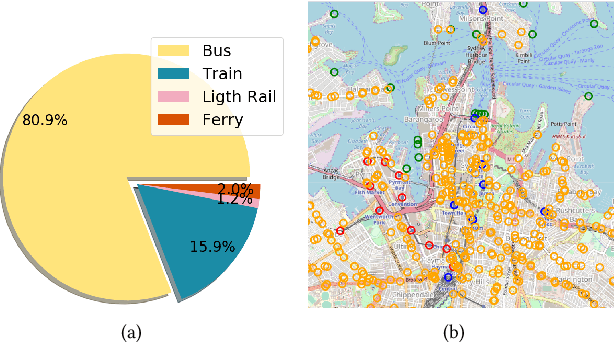

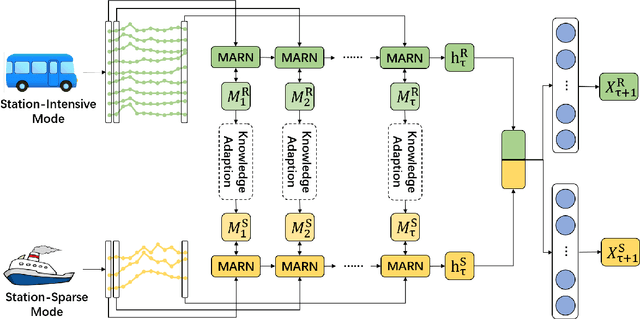
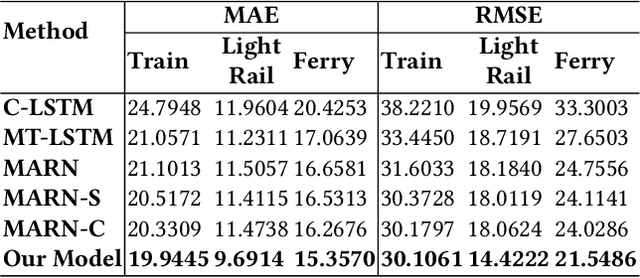
Abstract:Accurate demand forecasting of different public transport modes(e.g., buses and light rails) is essential for public service operation.However, the development level of various modes often varies sig-nificantly, which makes it hard to predict the demand of the modeswith insufficient knowledge and sparse station distribution (i.e.,station-sparse mode). Intuitively, different public transit modes mayexhibit shared demand patterns temporally and spatially in a city.As such, we propose to enhance the demand prediction of station-sparse modes with the data from station-intensive mode and designaMemory-Augmented Multi-taskRecurrent Network (MATURE)to derive the transferable demand patterns from each mode andboost the prediction of station-sparse modes through adaptingthe relevant patterns from the station-intensive mode. Specifically,MATUREcomprises three components: 1) a memory-augmentedrecurrent network for strengthening the ability to capture the long-short term information and storing temporal knowledge of eachtransit mode; 2) a knowledge adaption module to adapt the rele-vant knowledge from a station-intensive source to station-sparsesources; 3) a multi-task learning framework to incorporate all theinformation and forecast the demand of multiple modes jointly.The experimental results on a real-world dataset covering four pub-lic transport modes demonstrate that our model can promote thedemand forecasting performance for the station-sparse modes.
 Add to Chrome
Add to Chrome Add to Firefox
Add to Firefox Add to Edge
Add to Edge